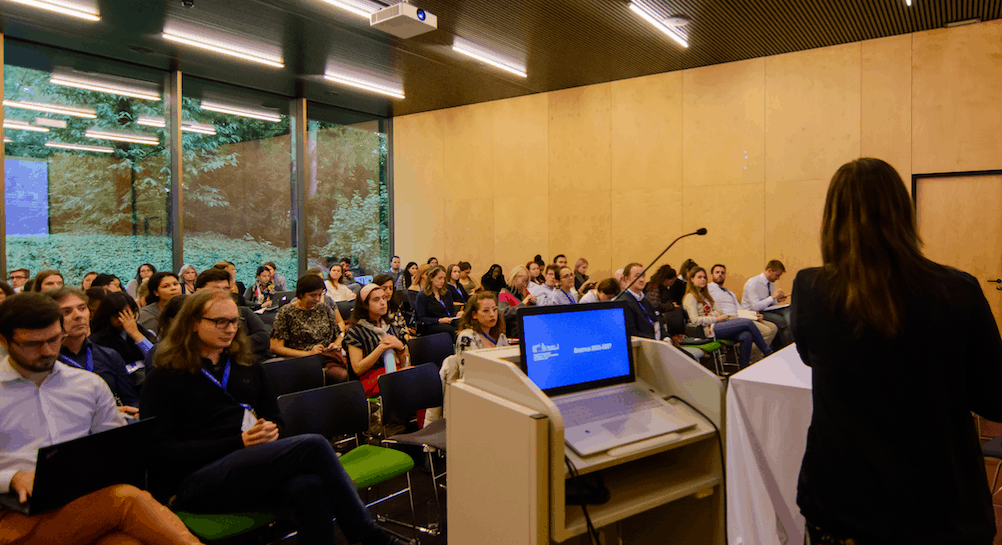The conference “Social Dimension of Erasmus+” took place on the 14th and 15th of October in Brussels and marked the ending of the SocialErasmus+ project. This two-day event provided participants the opportunity to discuss the importance of social engagement initiatives in international education and how to make Erasmus+ foster social inclusion and engagement with stakeholders including Maria Isabel Doval (Universidad de Vigo), Oana Dumitrescu (European Commission), Harpa Sif Arnarsdottir (European Commission), Pilar Aramburuzabala (European Association of Service-Learning in HE), Hélène Mariaud (ESU), Valérie Van Hees (Support Centre Inclusive Higher Education), Kostis Giannidis (ESN), and Stefan Jahnke (EUF).
SocialErasmus+ has had an immense impact on local communities. Around 1,300 activities, involving 86,000 participants and engaging 2,600 volunteers were organised in the academic year 2018/2019 alone. A highlight were the visits of international students to more than 260 schools and talking to over 10,000 pupils about intercultural experience, Erasmus and the benefits of mobility.
SocialErasmus+ is directly connected to the third mission of universities and there are more and more higher education institutions that are strengthening their awareness on the topic and restructuring their curricula in order to incorporate forms of service learning, as well as to bring international and local students in direct contact. Social inclusion remains one of the core horizontal priorities of the Erasmus+ programme. Together with other stakeholders such as the Erasmus Student Network and the European Association of Service-Learning in Higher Education, the EUF contributed to exert a social impact on local communities around Europe through international students.
However, recognition of social engagement initiatives in higher education remains a topic of discussion, which is why SocialErasmus+ brings forward a “Volunteering on exchange” Toolkit and the Educational Framework for Volunteering on Exchange providing instructions on implementation.
In addition, many successful projects across Europe were showcased including Virteach, Inclusive Schools, Euroscola, Celula Europa, Eureca project, Inclusion of Refugee Programme, Social Education at Masaryk University, Europa Macht Schule in Germany, GamifyEU and Time to Move.
Although the project came to an end with the conference, the overall message of the consortium is for everyone to keep engaged and follow the slogan: Leave Your Mark. The EUF invites all stakeholders to work towards building an inclusive society through initiatives that promote social engagement and volunteering on exchange.

